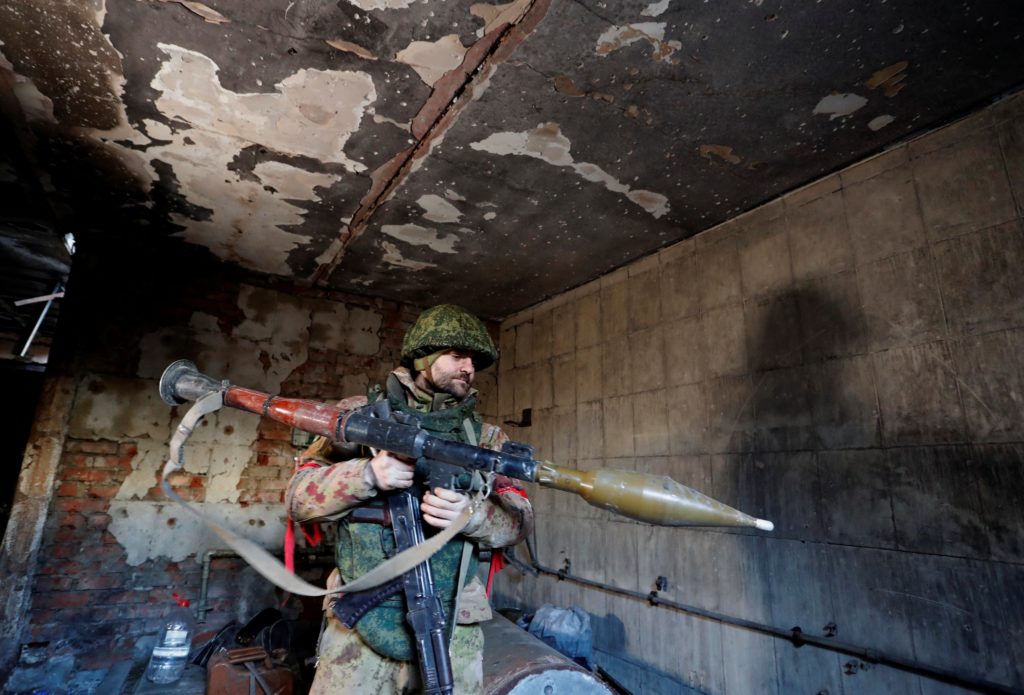Russia's war on Ukraine and international reaction to it show how nations still attempt "to govern the world as a chessboard, where the powerful study moves to extend dominance to the detriment of others," Pope Francis said.
While not specifically mentioning NATO, whose members have announced they are increasing their military spending in response to the war, the pope said, "I was ashamed when I read that, I don't know, a group of states have made a commitment to spending 2% of their GDP to buy weapons."
"It's madness," Pope Francis said March 24 during a meeting with representatives of the Italian Women's Center, an association founded after World War II to defend the dignity of women and promote their involvement in political and social life.
The association, he said, shares the Catholic Church's vision of politics as a form of charity aimed always at the promotion of the common good.
Obviously, he said, "good politics cannot come from the culture of power understood as domination and exploitation, but only from a culture of care, care of the person and his or her dignity and care of our common home."
The "shameful" war in Ukraine, the pope said, is proving his point.
"It is unbearable to see what has happened and is happening in Ukraine," he said, "but, unfortunately, this is the fruit of the old logic of power that still dominates so-called geopolitics. The history of the last 70 years proves it: Regional wars have never been lacking; that's why I have said we are seeing 'the Third World War in bits and pieces,' a bit everywhere."
But, Pope Francis insisted, Russia's war on Ukraine is different. It has "a larger dimension and threatens the whole world."
The solution "is not more weapons, more sanctions, more political-military alliances, but a different approach, a different way of governing the now globalized world -- not by baring teeth, as is happening now -- but a different way of setting up international relations," one that emphasizes care for one another.
However, he said, a way must be found to ensure that it is not subject to "economic-technocratic-military power."
Pope Francis said he wanted to share his reflection with the women's association because "women are the protagonists of this change of course, of this conversion, provided they do conform to the prevailing power system, provided they maintain their identity as women."
As women acquire more power in politics and in society, he said, "they can change the system" and "convert power from the logic of domination to the logic of service, to the logic of care."
"I wanted to speak to you about this to remind myself and everyone else, starting with us Christians, that this change of mentality concerns everyone and depends on each one of us," the pope told them.
"It is the school of Jesus, who taught us how the kingdom of God always develops from the small seed. It is the school of Gandhi, who led a people to freedom on the path of nonviolence," he said. "It is the school of the men and women saints of every age, who make humanity grow through the witness of a life spent in the service of God and neighbor."
"But," he said, "it is also -- and I would say, above all -- the school of countless women who have nurtured and cherished life; of women who have cared for the fragile, who have healed injuries, who have healed human and social wounds; of women who have dedicated mind and heart to the education of new generations."

